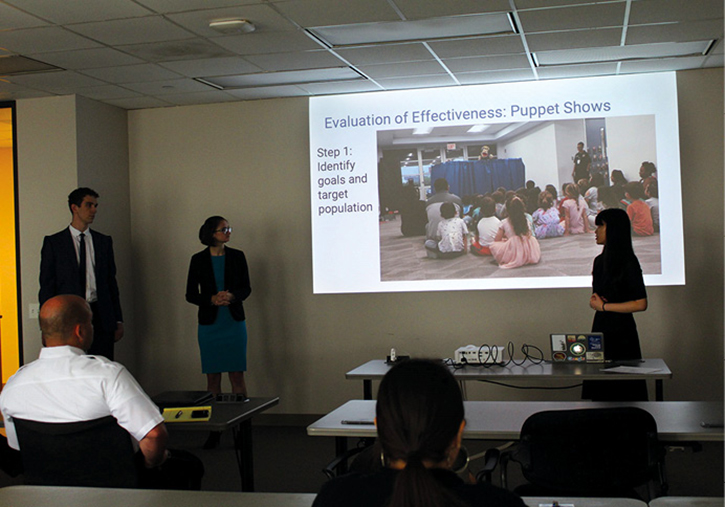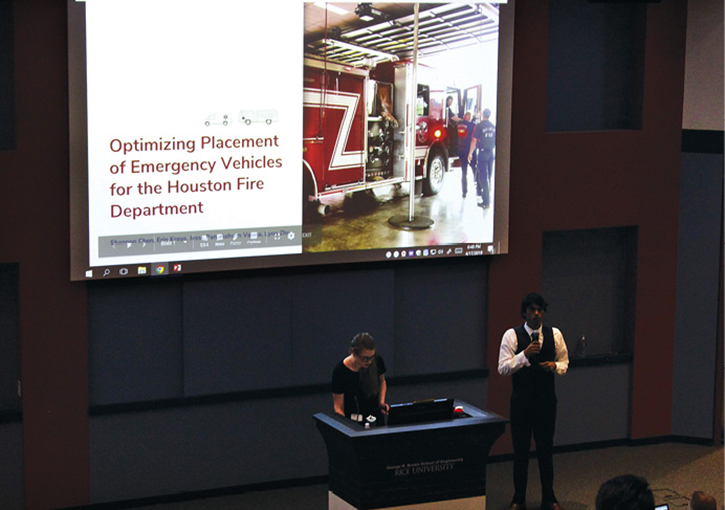
The fire service nationwide faces constant pressure to deliver services more efficiently without sacrificing quality, requiring agencies to continually evaluate the effectiveness of their practices, procedures, and policies. Such evaluations are critical to ensure that departments make the best use of their limited resources. The Center for Public Safety Excellence’s agency accreditation emphasizes the importance of this by requiring annual appraisals of key program areas. However, many departments often overlook a key community resource that can assist them—a local college or university.
Mutual Benefits
Building a co-educational relationship with a local college or university opens avenues for a fire department to access top-notch resources and talent to complement its efforts to evaluate the effectiveness of its operations. Fire departments have struggled to develop and retain their research design, program evaluation, and quantitative data analysis capabilities affordably. However, increasing staff or hiring consultants is costly, and it will take time for them to build awareness of the community and stakeholders. Colleges and universities, on the other hand, can provide expertise in research design and data analysis to aid program evaluation for a much lower cost than traditional solutions and as fixtures in the community understand potential cultural nuances.
RELATED
Firefighters and Higher Education: Enhancing an Individual, or Checking a Box?
These collaborative opportunities allow students to apply the knowledge and skills developed in the classroom to real-world problems. Guided by faculty and staff, students enjoy a rich learning environment in which their hands-on learning provides also tangible outcomes and deliverables for the fire department. Nationwide, many universities have identified the need for students to engage in real-world problem solving. For example, Rice University’s strategic plan has championed the importance of “experiential learning” to “provide transformative undergraduate education” that endows students with “critical thinking capabilities and creative problem-solving skills to be leaders and contributors to the world.”
Three Projects
In the past year, the Houston (TX) Fire Department (HFD) commissioned three projects with higher education programs designed to provide experiential learning opportunities for local students: Rice University’s Center for Civic Leadership, Rice University’s Data-to-Knowledge (D2K) Learning Lab, and the University of Houston’s Hobby School of Public Affairs. These three programs together provided the services and expertise that met the fire department’s needs at a much lower cost than traditional external solutions and provided students with meaningful problem-solving opportunities. In one project, a Houston Action Research Team (HART), sponsored by Rice’s Center for Civic Leadership, developed a means to evaluate the effectiveness of the department’s public education programs.

(1) Rice University Data-to-Knowledge (D2K) Lab students assigned to the Houston (TX) Fire Department win first place and cash prizes during the D2K Learning Lab Showcase for their apparatus placement study. They later presented to the Houston City Council’s Public Safety Committee in August 2019. (Photos by Leonard N. Chan.)
Recognizing the complexity of the issue, an interdisciplinary project team was comprised of four undergraduate students with support from Rice University faculty and staff. This combination of knowledge and skills ensured that different perspectives could be applied to the research and provided opportunities for innovative thinking by bringing together such a diverse array of experiences. The findings, therefore, have wide applicability across the fire service.
As part of their normal public outreach activities, the HFD regularly performs public education programs designed to teach important safety skills to the community. For example, the HFD sends personnel to public events to speak about fire safety to community events and regularly performs fire safety puppet shows in local schools to teach important safety skills to young children. However, the department had difficulty in systematically evaluating the effectiveness of these programs for community risk reduction. Up to this point, the department relied on the experiences of other departments and trusted that the public education programs would effectively support community risk reduction and mitigation efforts.
The HFD lacked the resources and skillset to conduct program evaluations for public safety programs, even though it has subject matter expertise in public safety and emergency response. As a result, the department lacked a systematic approach to validate the overall direction of the programs. From the HFD’s perspective, this limited the potential benefits the programs could provide to the local community and inhibited the department’s ability to strengthen an important component of its public outreach efforts.
Recognizing the need for outside support, the HFD approached the staff from Rice University’s Center for Civic Leadership and designed a framework for collaboration to focus on evaluating the performance of the HFD’s public safety education programs. The grant-supported team began its work in the next semester. Through traditional academic research and interaction with the HFD’s Public Affairs Division, the students could independently assess the current programs’ advantages and disadvantages, identify the best way to measure the programs’ success, and recommend ways to improve them.
Over the semester, the student team designed and implemented an original research project to evaluate the effectiveness of HFD fire safety puppet shows. The students met several times each week, attended and evaluated seven puppet shows at area elementary schools, drafted a comprehensive report, and conducted two presentations with department leadership to provide feedback and recommendations.

(2) Rice University Houston Action Research Team students presented their analysis of the effectiveness of the HFD’s fire safety puppet shows to the command staff in April 2019.
Fire Department and Student Benefits
Participating in this collaboration provided significant advantages for the HFD and for the students.
At the project’s conclusion, the HFD received a robust, comprehensive report on its public safety education programs. This included a list of best practices for public safety programs and program evaluation, a step-by-step evaluation process detailing how the department could evaluate its other programs’ effectiveness in the future, a quantitative assessment of the fire safety puppet show program’s effectiveness, and a needs assessment identifying future topics and target audiences. In addition, the students provided detailed recommendations on how the department could improve its public safety programs’ administration, such as creating a centralized scheduling tool and committing to conducting programs at a wider range of schools. The project also increased the department’s engagement with a key community stakeholder.
The students each gained real-world, hands-on experience in identifying best practices, reviewing academic and practitioner literature, collecting and analyzing data, and evaluating programs. These activities allowed the students to incorporate the classroom lessons into designing a solution for an important policy problem affecting their local community. By working directly with department personnel in critically evaluating the department’s public safety programs and observing department personnel performing fire safety puppet shows in the field, the students gained experience working collectively to solve an important, yet understudied, social issue. Their research potentially could enable the students to become more safety conscious and spread that mentality indirectly to their peers.
This collaboration between the HFD and Rice University led to a mutually beneficial relationship in which the fire department could tap into resources at a much lower cost than hiring consultants or redistributing staff to address an important but specialized component of its current operations. In addition, the students were able to engage with a real-world problem and use the knowledge and methods developed through their coursework to collaboratively make recommendations for improvement. Moving forward, the HFD and the Center for Civic Leadership will continue the partnership and identify other projects that would provide mutual benefits.
Investing in similar collaborative efforts with colleges and universities could provide significant benefits to other departments. By leveraging local colleges/universities’ skills and expertise, fire departments can gain important insights that will enable them to serve the community more effectively and efficiently. Through their coursework and with faculty, staff, and community partner advisors’ (in this case, the HFD) mentoring, students build capabilities in confronting a wide range of problems fire departments often face, including evaluating the effectiveness of their procedures and techniques, designing new pedagogical and community outreach activities, and analyzing data to reveal trends in disasters and response efforts. Partnerships between higher education and fire service institutions could also potentially equip current and future civic leaders to understand and shape public safety policy leading to improvements down the road.
Reference
Williams, Mike. (August 13, 2019). “Students: Adding 5 ambulances would aid EMS response across Houston.” Rice University News and Media Relations. https://bit.ly/36VvMG6.
Leonard N. Chan is a management analyst and an accreditation manager for the Houston (TX) Fire Department and served in a similar role with the Cedar Park (TX) Fire Department. He graduated magnum cum laude from Rice University with a bachelor of arts degree in political science, history, and religious studies and with a master’s degree in public administration from the University of Houston.
Steven Perry is a Ph.D. candidate in political science at Rice University and served as a graduate student coach for multiple Houston Action Research Teams. His research interests include political psychology, public policy, and emergency management.
Alan Steinberg, Ph.D., is an associate director in the Center for Civic Leadership at Rice University, where he oversees the Houston Action Research Teams. His research interests include political engagement, public policy, and civic education.

